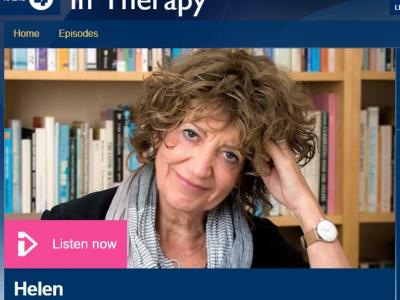
An IASH Work-in-Progress seminar, delivered by Dr Jivitesh Vashisht (University of Leeds):
“therapy has its own dramas”: In Therapy (2016) and the Radiophonic Clinical Vignette
Abstract:
The advice-dispensing ‘psy’ expert has long been an ubiquitous presence on airwaves across the world (the BBC, for instance, has long hosted ‘resident’ psychotherapists). But where on radio is the psychotherapeutic encounter in action, whose fictional representations in Hollywood cinema (Spellbound, Annie Hall, A Dangerous Method etc.) and prime-time television (The Sopranos, In Treatment) have been examined extensively by clinicians and critics alike? Can contemporary radio broadcasting transport listeners to the sequestered space of the therapy room, and if so, what might a radiophonic ‘talking cure’ sound like? Or is the tension between broadcasting’s ‘indiscriminate public address’ (Lacey) and the confidentiality of the therapy exchange ultimately irreconcilable, so that clinical practice can only remain an off-air support for radio programming’s ‘therapeutic’ aspirations: furnishing it with an ‘interior-oriented language’ of emotional and mental states (Richards and Brown) to understand individual and collective life while itself remaining shrouded in secrecy?
My work-in-progress talk explores some of these questions in relation to In Therapy (2016), the critically acclaimed Radio 4 series devised by Susie Orbach, Ian Rickson and Kevin Dawson that invited the British public to listen in on improvised sessions of psychoanalytic psychotherapy (episodes available to listen here). I argue that it is primarily through a collaborative process, in which a psychoanalyst works alongside a theatre director, a radio producer, a sound engineer and a team of actors, that the show succeeds in evoking the ‘here and now’ of the therapy hour for its listeners. The devising, recording and editing of unscripted cases, to which I attribute the show’s ‘fictional authenticity’, allows for a careful negotiation of the ethical dilemmas concerning the use of clinical material to illustrate the workings of psychotherapy. Even when the series sidesteps familiar impasses that often impede clinical demonstration, it ultimately reaffirms them by consistently espousing what I call a mode of ‘ethical overhearing’. Over and above its ostensible aim of demystifying psychotherapy for a wider public, In Therapy deploys the radio as a pedagogic tool by acquainting listeners with modes of speaking and listening – to oneself and others – that are attuned to the emotional complexities of psychic life.
Biography: Dr Jivitesh Vashisht works at the interface between modern and contemporary literary studies, medical humanities, and sound studies. As the 2020-21 Junior Anniversary Fellow at IASH, he is developing a new project that examines how various forms of clinical writing (in particular the case study or the case report) have shaped, and have in turn been shaped by, the contemporary cultural field, including literature, theatre and film. He is currently revising his doctoral thesis (on sonic figurations of femininity in Samuel Beckett’s fiction and drama) as a monograph, and guest editing a special issue of Paragraph (Edinburgh University Press) on Roland Barthes. His research has additionally appeared – and is forthcoming – in The Journal of Beckett Studies (EUP) and The Year’s Work in Critical and Cultural Theory (OUP).
Please email iash@ed.ac.uk for a link to join the session.
